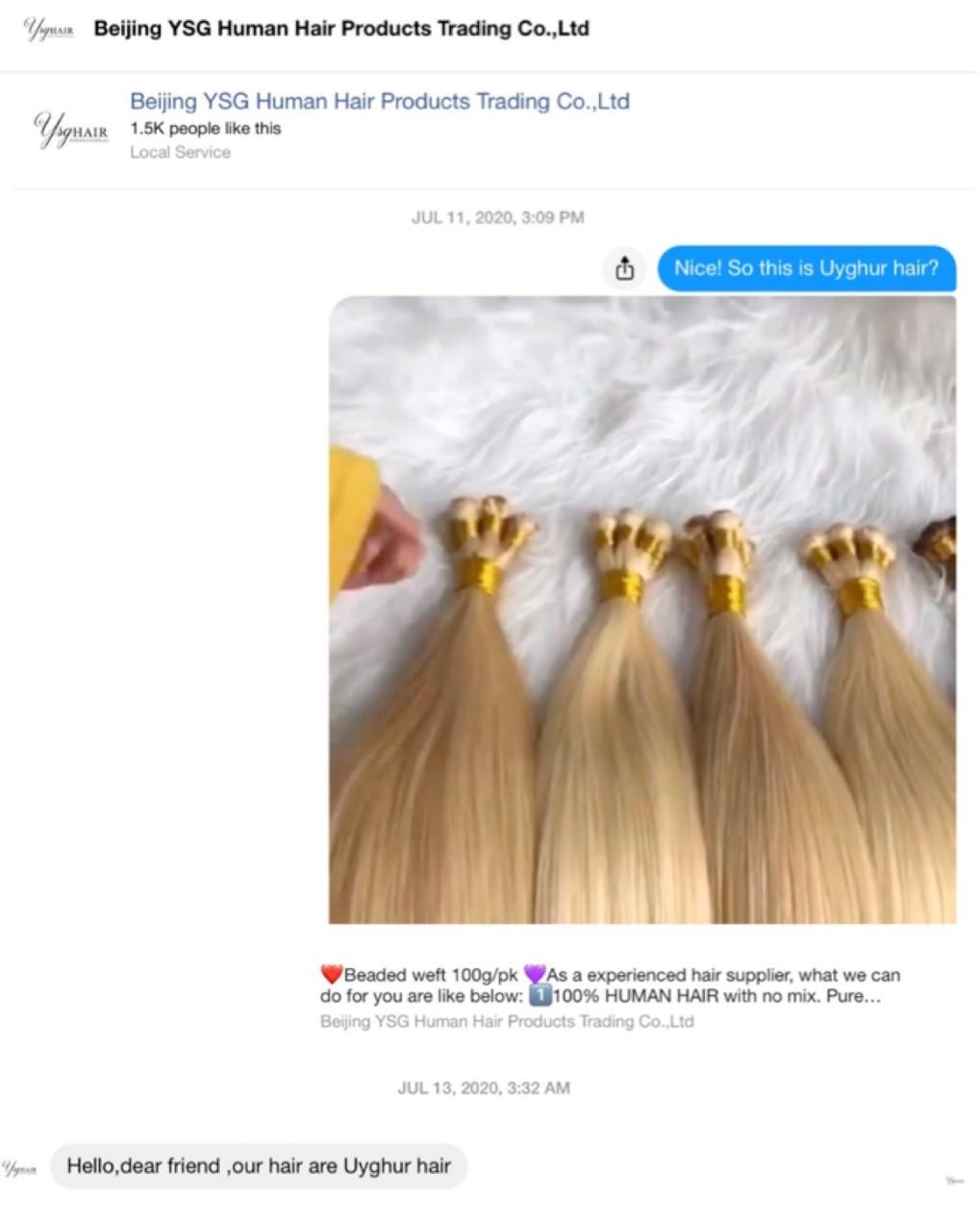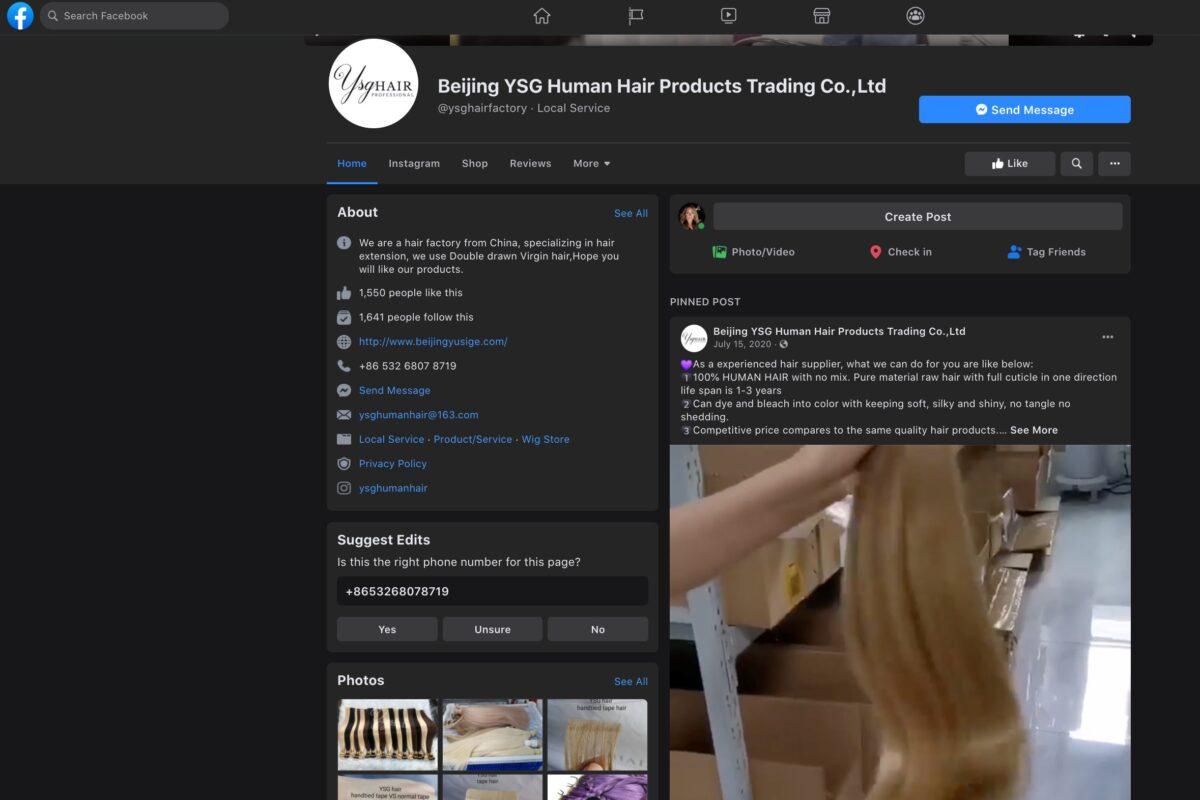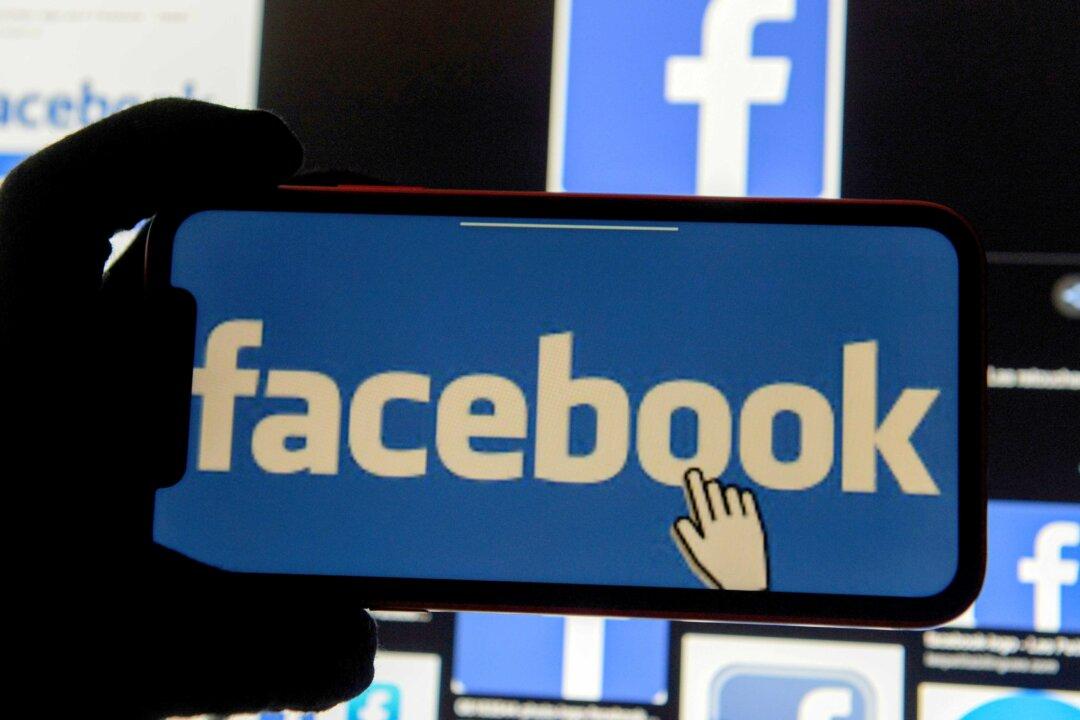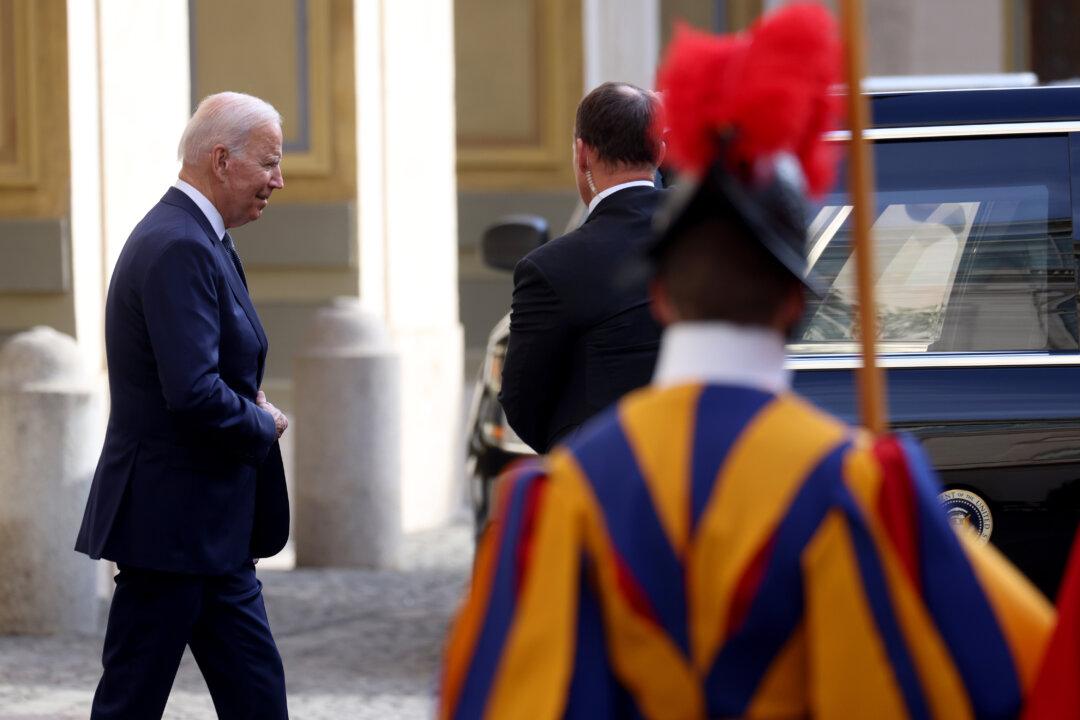The Background
On Aug. 20, 2020, the Epoch Times reported that U.S. Customs and Border Protection (CPB) seized over 13 tons of human hair products from the Western province of Xinjiang. In the report, Investigative journalist Ethan Gutmann stated, ““My back-of-the-envelope calculation is that this shipment represents the hair of approximately 90,000 women, incarcerated in ‘re-education camps.’ Although this sort of long, exotic hair—deep chestnut browns, red highlights—are usually identified in Chinese catalogs with the euphemism ‘Mongolian,’ the hair is shaved from the heads of Uyghur, Kazakh, Kyrgyz, and Hui women.”This week the United States—along with international allies in the “Five Eyes” intelligence alliance—announced new sanctions against at least two Chinese officials.
Commenting exclusively to The Epoch Times, Lord Alton addressed his disappointment that the measure he proposed did not fully pass, and his determination for his amendments to BREXIT Trade legislation to continue. “300 MPs brought the Government within a whisker of defeat in the (House of Commons) and majorities of over 100 in the House of Lords have demonstrated the strength of feeling and that, as new Genocides occur in places like Xinjiang, this argument is far from over and will not go away.” Alton wrote in an email to the Epoch Times.
“The Government has inched its way to finally accepting that its policy has consistently failed victims of genocide,” Alton went on. “By establishing a degree of parliamentary accountability it narrowly avoided defeat in the Commons but has left a way open for Parliament to name atrocity crimes for what they are and for our duties under the 1948 Convention on the Crime of Genocide to be fulfilled.” He explained.
Exclusive Evidence: Profiting from Genocide Continues


A source in Italy provided Epoch Times with screenshots of a conversation with an established company—Beijing YSG Human Hair Products Trading Company, Ltd.—reportedly telling the source it is located in Hong Kong, but whose location on its page and its name suggest it is within mainland China. Within the conversation, as seen in the screenshots provided, the source asked YSG where the hair was obtained, and if it was from the Uyghur ethnic group.
YSG responded, “Hello, dear friend, our hair [is] Uyghur hair.”
The Epoch Times followed up with several other sources, confirming a pattern of similar companies engaging in similar transactions on Facebook, targeting Western European and U.S. women. Sources explained that when they searched for “real hair extensions” or “real hair wigs,” ads would begin appearing on their Facebook timelines—ads with the same videos, same claims, but different company names. When contacted, these companies all claim to be located in Hong Kong, and that their “real human hair” products were of the highest quality.
As of March 21, YSG continues selling through Facebook hair it admitted was from Uyghurs. Similar companies “suggested” by the social media platform appear also to be selling Uyghur hair. Since a woman’s long hair is highly valued in Uyghur culture, the hair products being sold are almost certainly a product of the ongoing persecution, and not donated or sold freely.
How Facebook Makes Its Money
According to a report issued by Statista, in 2020 over “97.9% of Facebook’s global revenue was generated from advertising” with “Facebook ad revenue (standing) at close to 86 billion U.S. dollars.”
Human Rights and Big Tech
On March 16, 2021, Facebook announced a new “commitment to human rights policy.”Facebook did not respond to a set of questions about the ads from The Epoch Times.
The Epoch Times also contacted Beijing YSG Human Hair Products Trading Company, Ltd. for comment on our report— to confirm the continuance of their trade in Uyghur hair, and to confirm their suppliers, but YSG has also not responded.





